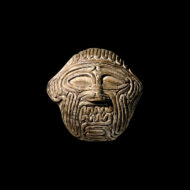Reports are coming through that BBC3 is going to become an online-only channel in the near future.
I’m absolutely fine with this.
Back in about 2000, I saw my first TiVo, which itself was the first PVR. A PVR (Personal Video Recorder) has a big-ass hard drive, and gathers information from the Electronic Programme Guide (EPG) that’s transmitted along with the programmes. When it sees a TV show that you’ve asked it to record, it saves it to the hard disk.
What this means is that, unlike previous TV-recording formats, you could set up the PVR to record your favourite shows. And it would carry on recording them, week after week. TiVos even had the technology to record shows it thought you might like, based on the ones you were already recording.
That’s when I knew that channels were dead.
A channel has a curatorial aspect. You know the sorts of programmes you’re going to get on BBC1 vs ITV1 vs C4 vs ITV3. Pre-PVR, you could have loyalty to a channel. One of my exes, growing up, had a mother that wouldn’t let her watch ITV.
Post-PVR, the loyalty drops as you can get recommendations based on what you already like, rather than what a channel controller thinks you’ll like.
Barring special events such as live TV or Christmas, I cannot think of a single person I know my age or younger who watches television live any more.
Not. One. Person.
Sure, they watch TV on their telly, but it’s mediated through iPlayer or Apple TV or a PVR or downloaded off the naughtywebs and piped through to the living room over wireless.
This is how I watch television now. The only reason I even know what channel a programme was broadcast on is because of the dog when I watch it on TiVo (And weren’t we all so snobby about those when they came in? I include myself there.)
The statement makes clear that BBC3 the brand will continue in its curatorial aspect; it just won’t be going out over the telly box any more. But, importantly, this aspect is no longer tied to the broadcast capability and bandwidth of the transmitters.
I think the future will be virtual channels.
Consider: the BBC creates a virtual channel on your EPG called BBC3, which curates all of the shows that are BBC3-like. Some panel shows or comedy shows shift to BBC2 or BBC1 – but they are still marked on your virtual channel as BBC3. Some shows are commissioned directly for BBC3 and are broadcast in dead space on one of the BBC’s muxes, in the middle of the night, say 2-6am.
Why stop at four? You can have a hundred BBC channels, one for every taste.
Disruption will occur. Old shows will get cancelled. New ones will be commissioned.
Good.
The only thing that surprises me is that this hasn’t happened already. Think of the new BBC3 in the same breath as Netflix, Amazon, or Geek & Sundry. All commissioning for online premieres already.
This gives the BBC a chance to get ahead of the US networks, and I think it’s nothing short of visionary.

